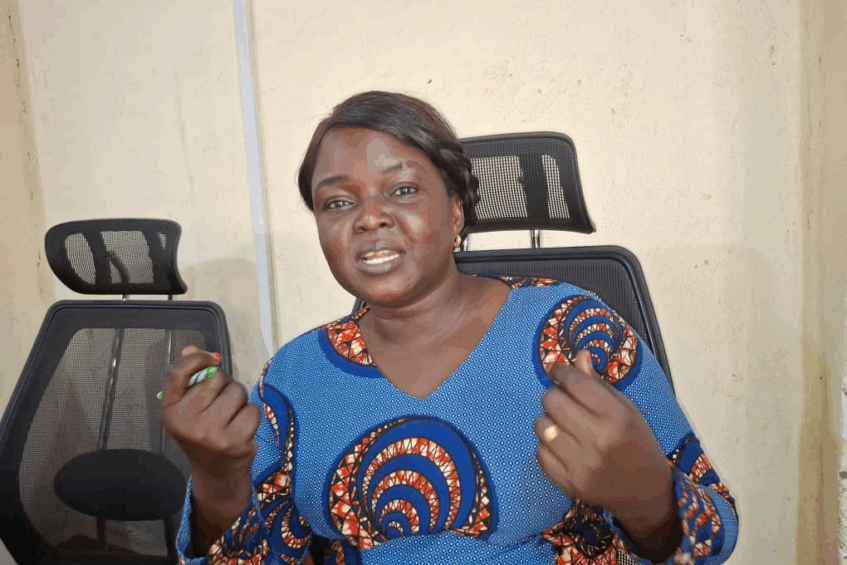
Author: Emmanuel J. Akile | Published: 2 hours ago
Activist Grace John Kenya – Photo credit: Madrama James
A civil society activist has said lasting peace is the foundation for reviving agriculture and ending the worsening food crisis in South Sudan.
Grace John Kenyi, the Executive Director of the Centre for Strengthening Community Voices, said insecurity continues to prevent farmers from planting and harvesting food, increasing hunger and blocking development.
She made the remarks on Eye Radio’s Dawn Show on Thursday, where she appealed to the country’s leaders to fully implement the 2018 revitalized peace deal.
According to Grace, only lasting peace will allow communities to cultivate without fear.
“So, I would like to use this opportunity to really appeal to our political leadership to recommit themselves, they should come and have a dialogue among themselves. Dialogue is the only way to resolve our issues to help us address so many challenges that we are encountering at the moment as a country,” he said.
Grace also called on international partners not to scale down support to the agriculture sector, especially during this year’s World Food Day, marked under the theme: “Hand in Hand for Better Food and a Better Future.”
“I would like to call upon our partners and international community to continue supporting the agricultural sector in South Sudan, and to continue talking to our government and political leadership to ensure these current challenges are addressed,” he added.
Her comments come as the United Nations calls for global cooperation to build a peaceful, sustainable, and food-secure future.
In South Sudan, the humanitarian situation remains alarming. At least 7.7 million people – more than half of the country’s population – are facing severe hunger, classified as IPC Phase 3 or higher.
Some counties in Upper Nile State – including Nasir, Ulang, Luakpiny/Nasir, and Malakal – are at serious risk. In the worst-hit areas, tens of thousands of people are experiencing catastrophic hunger levels.
An estimated 32,000 people in Upper Nile alone are in IPC Phase 5 – the highest level of food insecurity.
Malnutrition rates are also rising. Around 2.3 million children across the country are at risk of acute malnutrition, especially in areas affected by conflict and flooding.
As the world observes World Food Day, activists like Grace John are urging South Sudanese leaders to prioritize peace as the first step toward ending hunger and helping the country stand on its feet.








